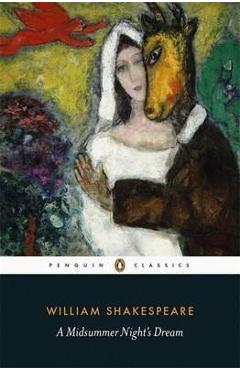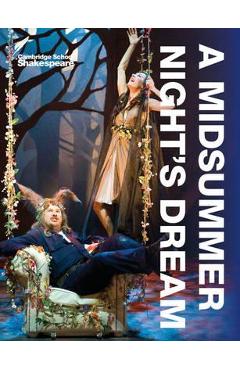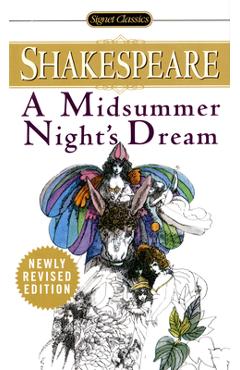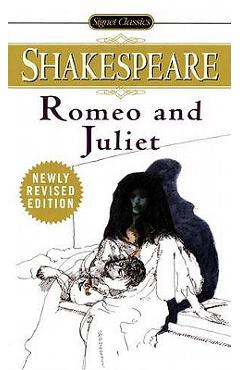Midsummer Night\'s Dream

Detalii Midsummer Night\'s Dream
libris.ro
48.9 Lei
54.33 Lei
Reference & Language
William Shakespeare
Midsummer Night\'s Dream - Disponibil la libris.ro
Pe YEO găsești Midsummer Night\'s Dream de la William Shakespeare, în categoria Reference & Language.
Indiferent de nevoile tale, Midsummer Night\'s Dream din categoria Reference & Language îți poate aduce un echilibru perfect între calitate și preț, cu avantaje practice și moderne.
Preț: 48.9 Lei
Caracteristicile produsului Midsummer Night\'s Dream
- Brand: William Shakespeare
- Categoria: Reference & Language
- Magazin: libris.ro
- Ultima actualizare: 28-10-2025 01:22:05
Comandă Midsummer Night\'s Dream Online, Simplu și Rapid
Prin intermediul platformei YEO, poți comanda Midsummer Night\'s Dream de la libris.ro rapid și în siguranță. Bucură-te de o experiență de cumpărături online optimizată și descoperă cele mai bune oferte actualizate constant.
Descriere magazin:
A raucous comedy that thrusts a quartet of reckless young lovers headfirst into a world of magic and fantasy, William Shakespeare\'s A Midsummer Night\'s Dream is edited by Stanley Wells with an introduction by Helen Hackett in Penguin Shakespeare. \'Lovers and madmen have such seething brains, Such shaping fantasies, that apprehend More than cool reason ever comprehends\' Lovers Lysander and Hermia flee Athens to escape the authority of their parents, only to be pursued by Hermia\'s betrothed Demetrius, and her friend Helena. Unwittingly, all four find themselves in an enchanted forest where Oberon, the king of the fairies, and Titania, his queen, soon take an interest in human affairs, dispensing magical love potions and casting mischievous spells. In this dazzling comedy, confusion ends in harmony, as love is transformed, misplaced, and - ultimately - restored. This book contains a general introduction to Shakespeare\'s life and Elizabethan theatre, a separate introduction to A Midsummer Night\'s Dream, a chronology, suggestions for further reading, an essay discussing performance options on both stage and screen, and a commentary. William Shakespeare (1564-1616) was born to John Shakespeare and Mary Arden some time in late April 1564 in Stratford-upon-Avon. He wrote about 38 plays (the precise number is uncertain), many of which are regarded as the most exceptional works of drama ever produced, including Romeo and Juliet (1595), Henry V (1599), Hamlet (1601), Othello (1604), King Lear (1606) and Macbeth (1606), as well as a collection of 154 sonnets, which number among the most profound and influential love-poetry in English. If you enjoyed A Midsummer Night\'s Dream, you might like The Taming of the Shrew, also available in Penguin Shakespeare. \'He could mingle sublimity with pathos, bitterness with joy and peace with love\' Aldous Huxley

Produse asemănătoare

A Midsummer Night\'s Dream the Graphic Novel: Original Text - William Shakespeare
![]() libris.ro
libris.ro
Actualizat in 28/10/2025
105.74 Lei

Cambridge School Shakespeare - A Midsummer Night\'s Dream - William Shakespeare
![]() libris.ro
libris.ro
Actualizat in 28/10/2025
130.76 Lei
Produse marca William Shakespeare

Romeo and Juliet the Graphic Novel: Quick Text - William Shakespeare
![]() libris.ro
libris.ro
Actualizat in 28/10/2025
105.74 Lei

Manga Classics: Macbeth: Macbeth - William Shakespeare
![]() libris.ro
libris.ro
Actualizat in 28/10/2025
111.55 Lei

Macbeth: The Graphic Novel: Plain Text - William Shakespeare
![]() libris.ro
libris.ro
Actualizat in 28/10/2025
105.74 Lei





